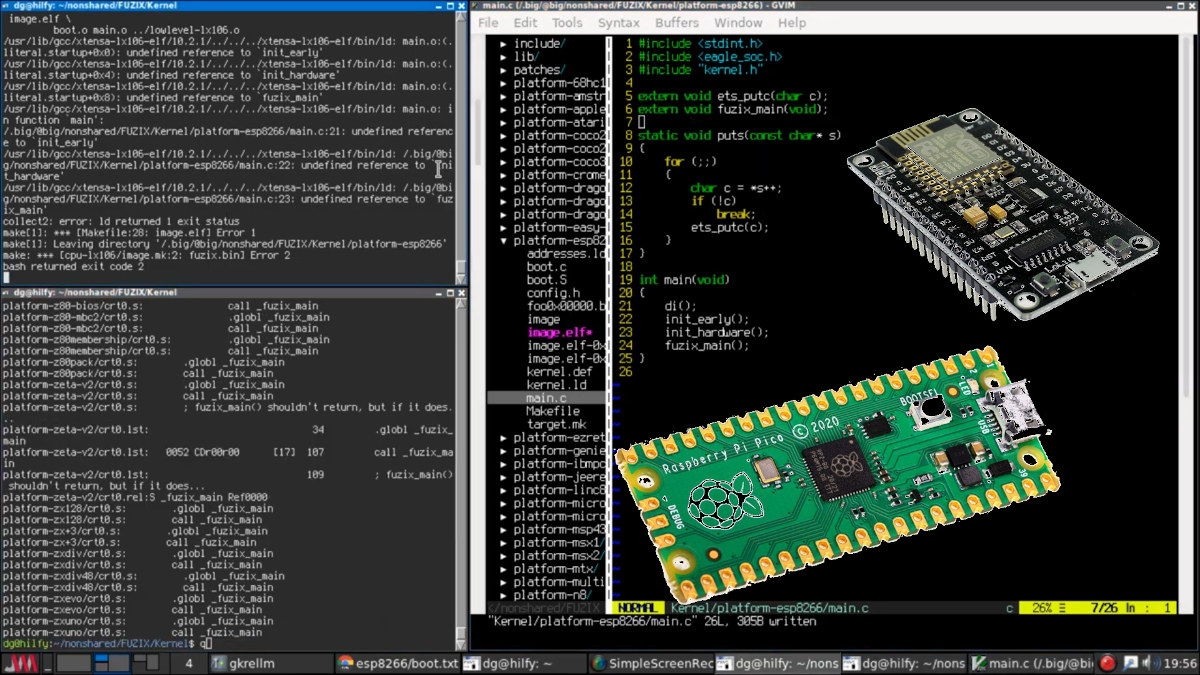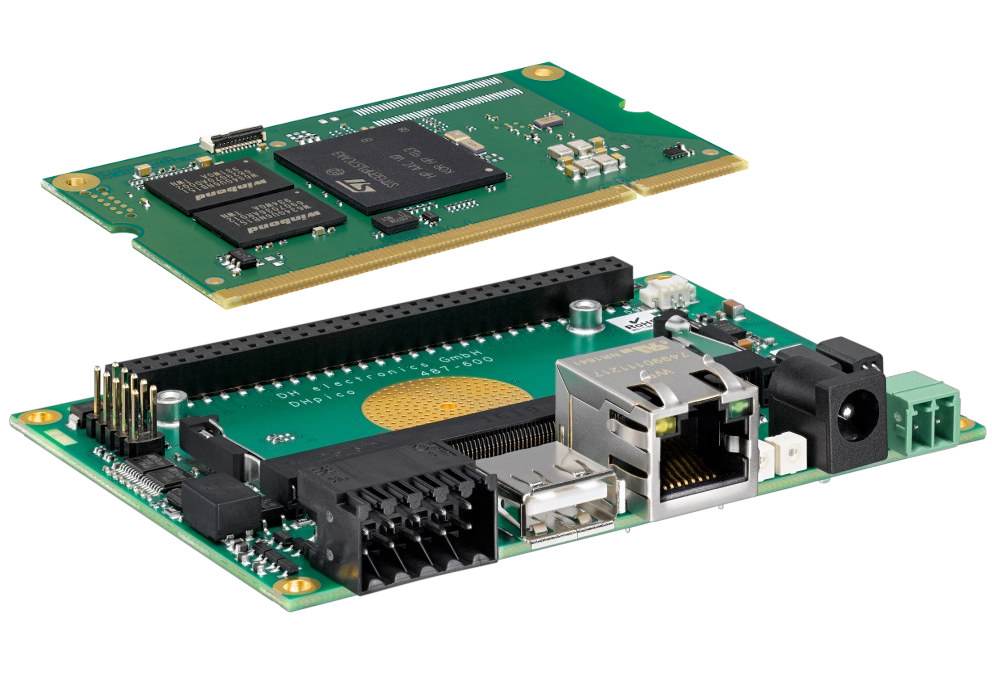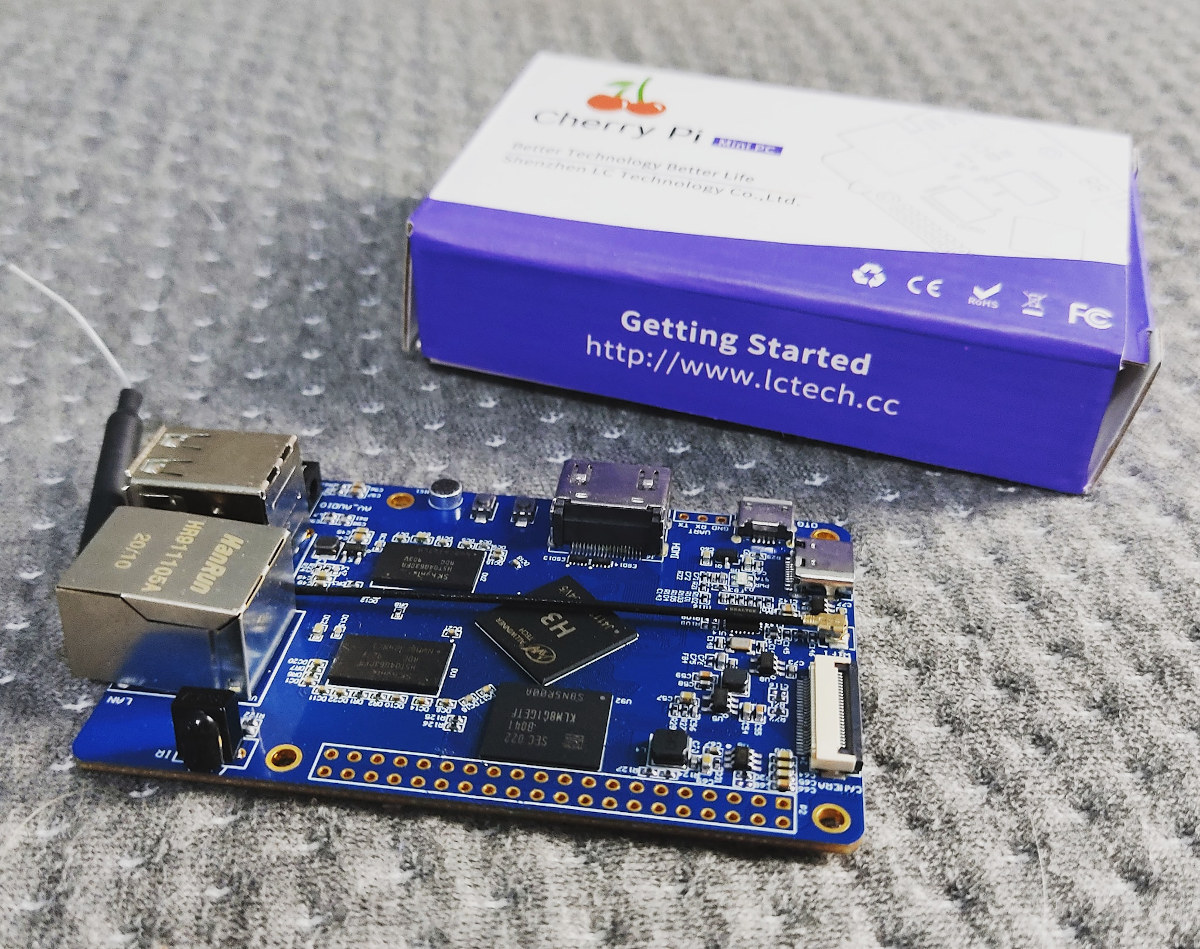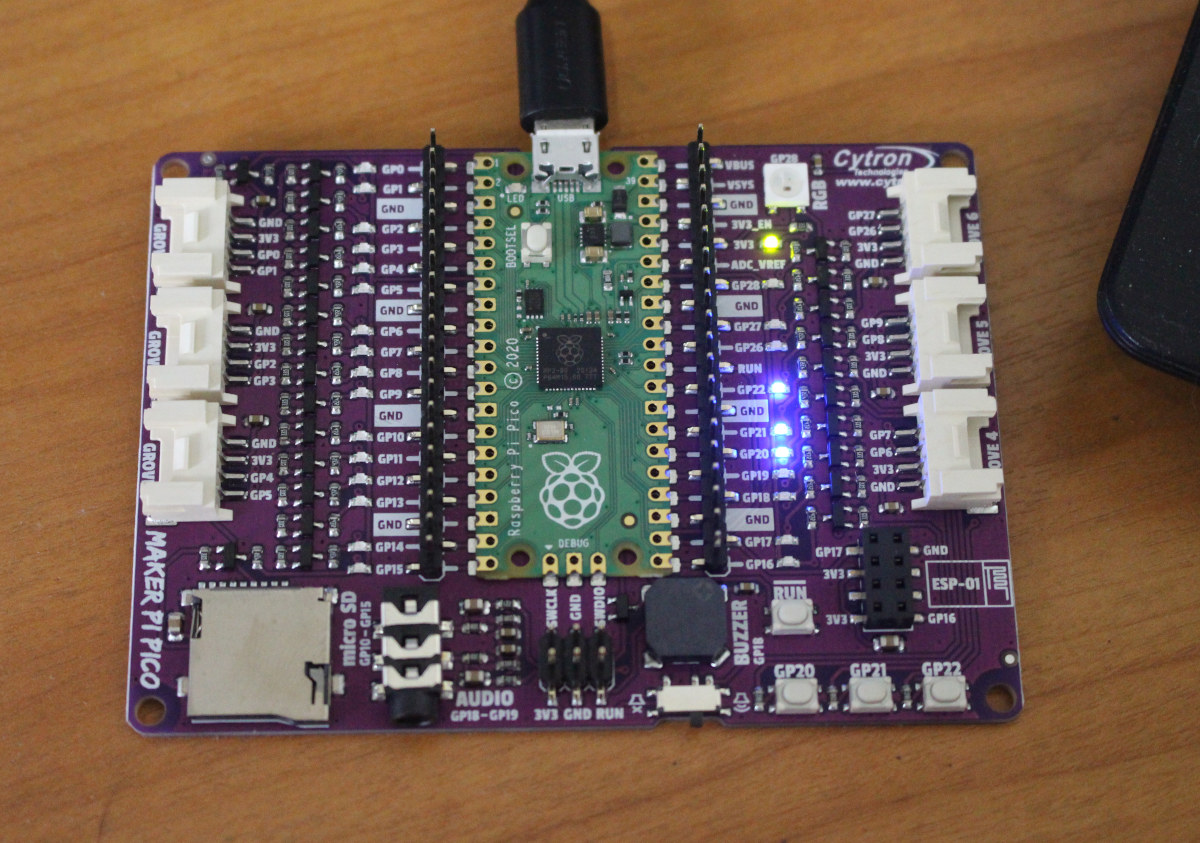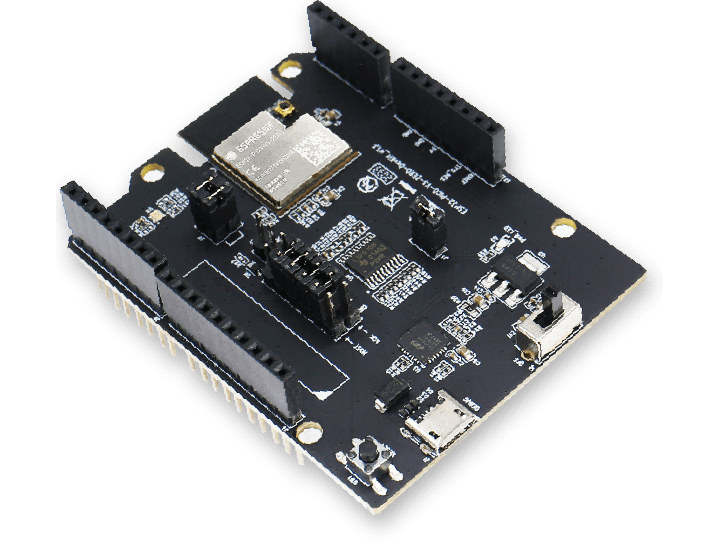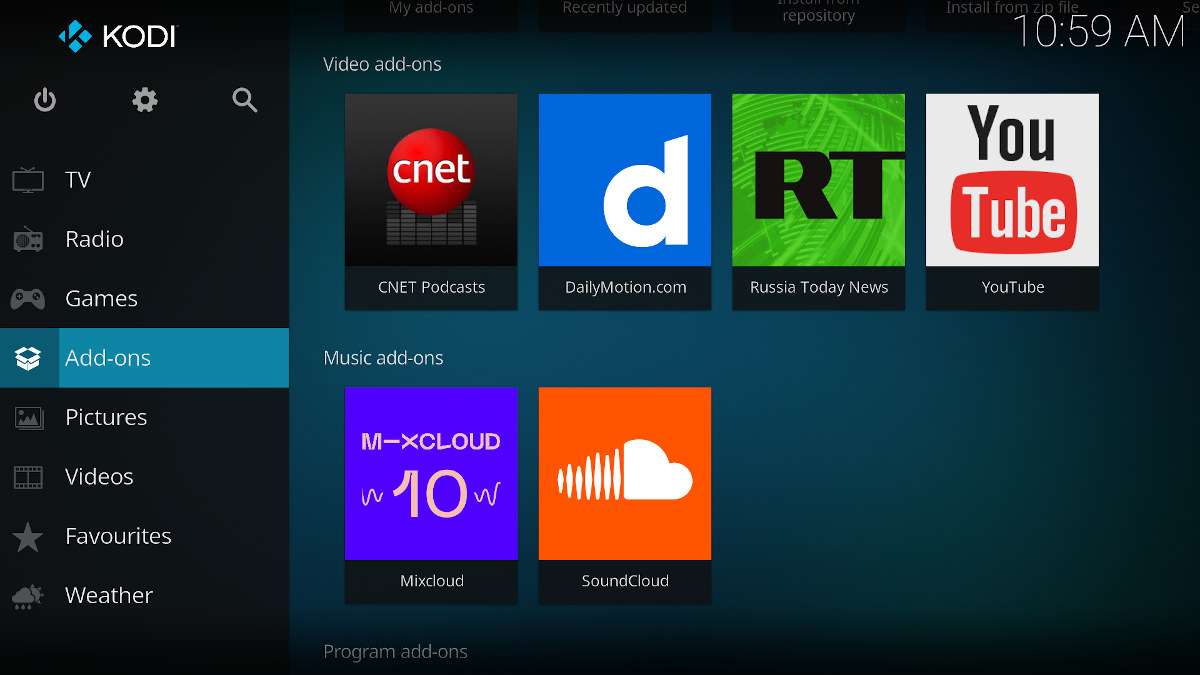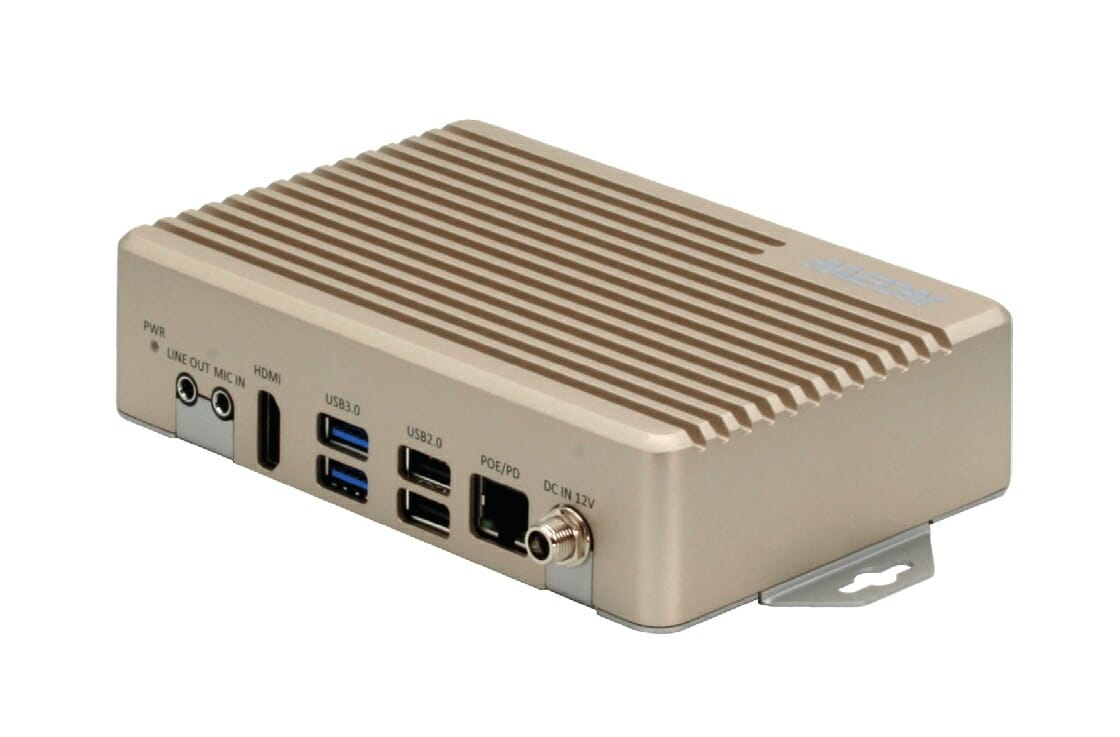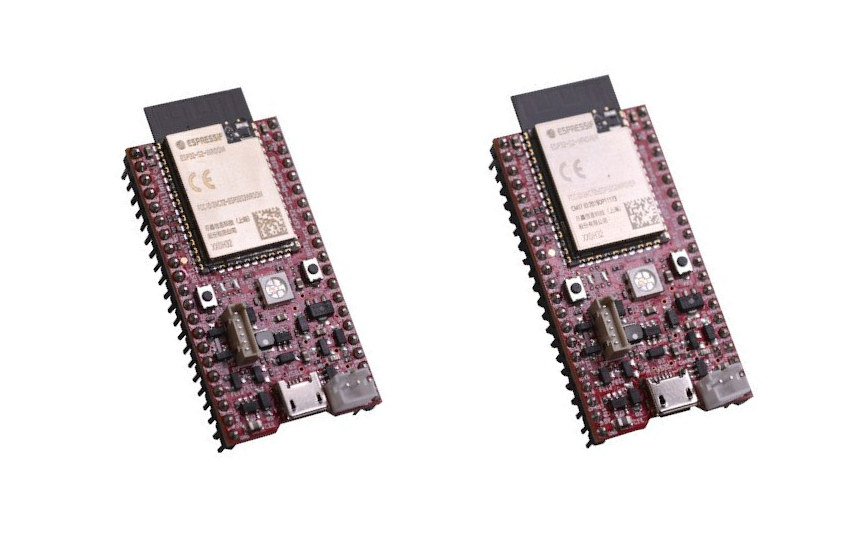The Raspberry Pi Pico is not compatible with Linux, but now supports another Unix-like operating system known as Fuzix. Alan Cox’s Fuzix is a Unix-like operating system for older devices with less performance capacity. David Given’s two recent posts have brought to the attention about the operating system’s compatibility with ESP8266 MCU and Raspberry Pi Pico. Fuzix operating system has a kernel which is the central core of the system. Also, it has a C compiler and a set of core applications similar to the UNIX filesystem. The Raspberry Pi Pico port comes with many benefits like a well-structured Unix filesystem with its compatibility for SD cards through the SPI interface. Hence, supporting the Fuzix operating system. The full set of Fuzix binaries is available through a serial console to UART0. Porting Fuzix to ESP8266 The post on “Porting Fuzix to the ESP8266” addresses the MCU’s support for the Fuzix […]
STM32MP1 Linux SoM fits into Pico-ITX carrier board
DH electronics DHCOM STM32MP1 is an STMicro STM32MP1 Cortex-A7/M4 system-on-module (SoM) following the company’s SO-DIMM-based DHCOM standard, and capable of running Linux with Etnaviv GPU drivers. The SoM is compatible with two DHCOM carrier boards from the company, namely DH PDK (Premium Developer Kit) for development, and DH PicoITX2 Pico-ITX board for direct integration into products. DHCOM STM32MP1 SoM DHCOM STM32MP1 specifications: SoC – STMicro STM32MP15x with up to two Arm Cortex-A7 core up to 650 MHz, one Arm Cortex-M4 up to 209 MHz, Vivante 3D GPU @ up to 533 MHz with OpenGL ES 2.0 support System Memory – 256, 512, or 1024 MB 32-bit DDR3 DRAM Storage 4, 8, or 16 GB eMMC flash 2 MB boot flash 256 bytes EEPROM MicroSD card socket on module Connectivity – WiFi 4 IEEE 802.11 a/b/g/n, 802.11j (hosted mode) with dual band, Bluetooth 5.0 (BR/EDR/BLE), PCB antenna and U.FL antenna connector […]
Cherry Pi PC SBC is an Orange Pi PC clone selling for $16.5 and up
Orange Pi PC is an Allwinner H3 SBC that was launched in 2015 for as little as $15 plus shipping (now $17.42 with 1 GB RAM), and made by a company called Shenzhen Xunlong Software. The next year, the company launched Orange Pi PC Plus with 8GB eMMC flash and WiFI connectivity for $20 (now $25.54). It appears another company named “Shenzhen LC Technology” has designed a board with similar specifications & layout, so not technically a clone, but close enough. Meet Cherry Pi SBC. Cherry Pi PC V7 SBC specifications with highlights in bold or strikethrough showing the differences with Orange Pi PC: SoC – Allwinner H3 quad-core Cortex A7 processor with an Arm Mali-400MP2 GPU System Memory – 512MB or 1GB DDR3 Storage – MicroSD card slot up to 64GB, optional 8GB eMMC flash, Video Output – HDMI 1.4 and AV ports Audio I/O – HDMI, AV port, […]
Maker Pi Pico STEM board mini review with CircuitPython
In my early list of third-party Raspberry Pi RP2040 boards, I shortly mentioned Cytron Maker Pi Pico baseboard for Raspberry Pi Pico that exposes all pins via female headers, includes LEDs for all GPIOs pin, six Grove connectors, three user push-buttons, one RGB LED, a piezo buzzer, an audio jack, a MicroSD card, and an ESP-01 socket to add WiFi connectivity. The beta version sold for $5, and at the time I missed that included Raspberry Pi Pico board as well, so basically you got a free baseboard. The Malaysian company has now sent me a review sample to play around with, so let’s have a closer at the hardware and code samples for the board. Maker Pi Pico Unboxing and Specifications I received the board in Cytron package together with a pinout diagram for Raspberry Pi Pico, and we can see the latter is already soldered to Maker Pi […]
ESP32-PICO-V3-ZERO-DevKit targets Amazon Alexa Connect Kit (ACK) development
Last summer, Espressif and Amazon jointly announced the ESP32-PICO-V3-ZERO Alexa Connect Kit module providing out-of-box connectivity to ACK (Alexa Connect Kit) cloud services, support for features such as Alexa control, “Frustration-Free Setup” and Amazon Dash replenishment for connected devices. At the time, the module was still at the developer preview stage, and you had to create your own carrier board for the module. But now development has been easier with the companies launching ESP32-PICO-V3-ZERO-DevKit compatible with Arduino Zero development board. ESP32-PICO-V3-ZERO-DevKit specifications: Wireless module – Espressif Systems ESP32-PICO-V3-ZERO with ESP32-PICO-V3 System-in-Package (SiP) based on ESP32-V3 dual-core Xtensa LX6 WiFI and Bluetooth SoC, a 4 MB SPI flash, a crystal oscillator, filter capacitors, and an RF matching network. Expansion – Arduino Zero compatible pass-through headers Debugging – 1x micro-USB port Misc – Power & Status LEDs, Reset button, jumpers to route specific signals to the headers, DSN (Device Serial Number – […]
Kodi 19 “Matrix” released with AV1, HDR, tvOS support
Kodi is an open-source media center that was initially designed for the XBOX game console, but was quickly ported to other platforms such as Windows and Linux, and eventually to low-cost Android TV boxes and single board computers such as Raspberry Pi. A new stable release of the software comes out every couple of years, and the developers have just announced the release of Kodi 19 “Matrix” a little over two years after Kodi 18 “Leia” release. The default user interface may look similar to the one for Kodi 18, but there have been many changes over the last two years with some of the highlights including: Skin/Look-and-Feel Screen redesign, especially for music with new metadata displays and changes to playlist views New “now playing” view Artwork and image file improvements Video Playback AV1 software decoding Windows 10 – HLG HDR and static HDR10 playback Android – Static HDR10 and […]
PoE powered AI Edge computer combines NXP i.MX 8M SoC with Google Edge TPU
AAEON has introduced several BOXER AI edge computers over the years either powered by an NVIDIA Jetson module, a HiSilicon HI3559A Arm SoC, or an Intel processor combined with Movidius Myriad AI accelerator. The latest model, BOXER-8521AI, combines an NXP i.MX 8M SoC with Google Edge TPU AI accelerator, and offers 1GB RAM, USB ports, a 40-pin external I/O connector, and 12V or PoE power inputs. AAEON BOXER-8521AI specifications: SoC – NXP i.MX 8M SoC quad-core Cortex-A53 processor with Cortex-M4F real-time core, 2D/3D GPUs AI Accelerator – Google Edge TPU ML accelerator coprocessor System Memory – 1GB LPDDR4x RAM Storage – 8GB eMMC flash, MicroSD card slot Video Output – 1x HDMI 2.0a port Audio – 1x Mic-in, 1x Line-out, optional 2x MEMS microphones Connectivity Gigabit Ethernet RJ45 port with PoE (802.3at) Optional? WiFi 2×2 MIMO (802.11b/g/n/ac 2.4/5GHz) & Bluetooth 4.1 plus two antennas USB – 2x USB3.2 Gen 1 […]
LiPo battery powered Olimex boards use ESP32-S2’s USB OTG interface
Last year, Olimex introduced ESP32-S2-DevKit-LiPo and ESP32-S2-WROVER-Devkit-LiPo boards optimized for battery-powered applications with as little as 30uA deep sleep power consumption. ESP32-S2 processor comes with a USB OTG interface, but at the time, Espressif Systems ESF-IDF SDK did not support programming via the built-in USB interface, so Olimex added CH340T USB to serial converter for programming. The good news is that the SDK can now support USB programming without an external chip, so the company designed new versions of the boards without a USB to serial chip with namely ESP32-S2-DevKit-LiPo-USB and ESP32-S2-WROVER-Devkit-LiPo-USB boards. The specifications are basically the same as previously except for the removal of the USB to serial chip, support for USB OTG, and even lower power consumption: Wireless module: ESP32-S2-DevKit-LiPo – ESP32-S2-WROOM with Espressif ESP32-S2 single-core 32-bit LX7 microprocessor up to 240 MHz with 128 KB ROM, 320 KB SRAM, 16 KB SRAM in RTC, 4MB SPI […]


